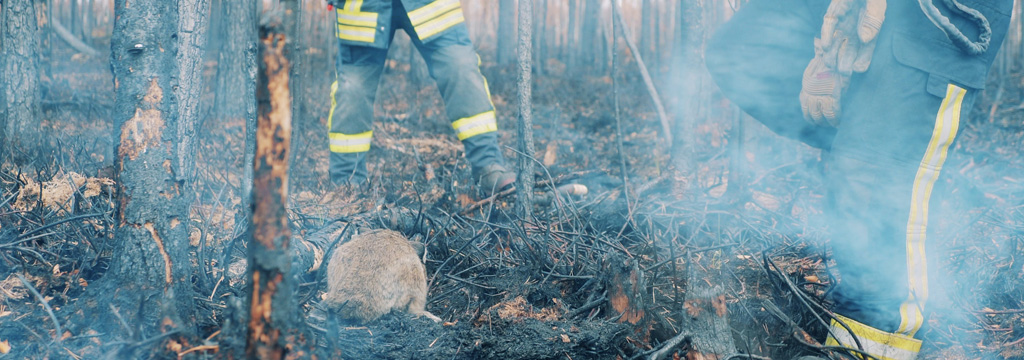Spain approves animal rescue in natural disasters and emergencies

Animals suffer not only from exploitation but also from natural disasters and other emergencies like extreme weather and wars. To defend animals, we must both oppose their exploitation and support efforts to help them, especially wild animals. Our website and video course provide extensive information on this issue.
A little over two years ago, Animal Ethics published a study on opinions among scientists about the importance of researching ways to help wild animals as individuals, regardless of their species. This study identified three particularly promising areas of research: assisting wild animals living in urban environments (such as birds, small mammals, frogs, lizards, and insects), wildlife vaccination programs (already in use for several decades), and the design of protocols to help animals suffering from hostile weather events.
Not only can these three ways of helping animals make a difference for the animals who are helped (or whose suffering we can be prevent), but the possibilities for developing these areas is particularly promising. Research on these ways to help wild animals can encourage more attention to helping wild animals in the sciences (especially in veterinary science and biology).
Over the past few years, Animal Ethics has made various proposals to the governments of Spain and Brazil, advocating for these measures, particularly the inclusion of animals in action plans for extreme weather events and natural disasters.
We are pleased that the Spanish government has recently adopted such a measure. This took place with the approval of Royal Decree 524/2023, dated June 20, 2023.
This decree under the Basic Civil Protection Law establishes in Article 4.2 that Basic Planning Guidelines must include basic measures for animal protection. In addition, Article 7.2 states that civil protection plans will include animal protection measures.
This inclusion, for the first time in Spanish legislation, will contribute substantially to considering animals in risk situations, such as natural disasters (floods, earthquakes, tsunamis, volcanic hazards); weather events (adverse phenomena, forest fires); industrial accidents (involving chemicals, biology, nuclear materials, transportation); and war.
The approval of this decree establishes the legal basis for attending to and rescuing animals in circumstances like these in Spain. It also serves as an example and precedent for implementing similar measures implemented elsewhere, and it can encourage academic research on this issue. This will allow for a deeper understanding of how different risks affect animals and how to act in response.
Measures like these show that progress can be made in gaining greater consideration for animals in general and specifically animals in need of help. It demonstrates that the efforts that Animal Ethics and other organizations are making to promote this idea, and to increase concern for the suffering of wild animals, are advancing the field.
Of course, the achievements so far are insufficient. Enforcement of the laws could still undervalue the interests of animals. We must continue questioning speciesism and raising awareness among the public about the consideration of animals. We should help animals when they are suffering from any type of harm, whether caused by humans or by nature.